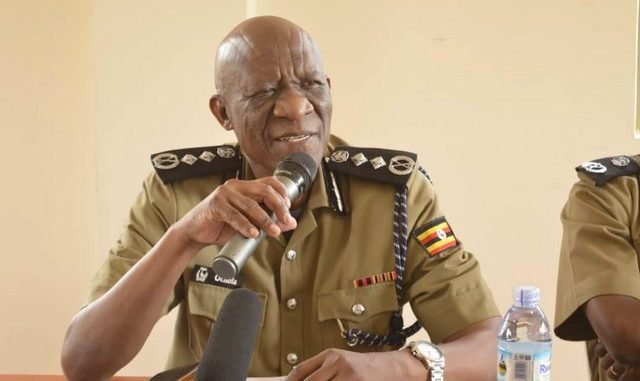
Kampala, Uganda | URN | Civil Society Organizations [CSOs] have described as unfortunate, naive and nonsensical the statements made by the Inspector General of Police Martin Okoth Ochola that the force will continue beating journalists and has no apologies for it.
IGP Ochola said the police beat journalists to protect them and that they would continue doing so if they disobeyed police guidance. He said he wouldn’t apologize for beating journalists adding that they are beaten to protect them from danger.
Human rights lawyer Eron Kiiza says the statements threaten journalism because no one wants to be beaten. He says this will not only affect journalists but the general public whose right to freedom of speech and expression shall be violated.
He says that with such a statement, the IGP is propagating state inspired violence and inciting violence which is against Uganda’s laws. Kiiza says the last person expected to hear this “nonsense” from is the head of police, an institution meant to maintain law and order.
Sarah Bireete, the Executive Director at Center for Constitutional Governance says Uganda seems to be experiencing the most violent election and what all security personnel are doing is condone and encourage the acts.
In the recent past, the public has heard high profile officials in government making statements interpreted as propagating violence against Ugandans.
Security Minister Elly Tumwine said security has a right to shoot Ugandans during protests.
Bireete says that now, only the ruling National Resistance Movement [NRM] supporters and government institutions are spared from security agencies attacks, something that has shrunk civic participation.
She says the least IGP Ochola would have done is apologize for media harassment among other forms of human rights violations perpetrated by security personnel.
She says Ochola instead of assuring Ugandans of a peaceful election sent them a message that they are on their own.
Livingstone Sewanyana, Founder and Executive Director of the Foundation for Human Rights Initiative (FHRI) says it is unfortunate that a high ranking official could make such a “political statement” intended to instill fear in media practitioners.
He cautioned individual officers against following Ochola’s statement because they shall be individually held accountable for torture.
Security personnel just like any citizen can be sued under the Prevention and Prohibition against Torture Act 2012. The Act provides for respect of human dignity and protection from inhuman treatment by prohibiting and preventing any form of torture or cruel, inhuman or degrading treatment or punishment. It provides for the crime of torture.
Julius Esegu, the Chairperson of Human Rights Network for Journalists-HRNJ says such a statement is highly unfortunate coming from a senior citizen and a man supposed to be commanding a lot of respect. He says the IGP is expected to make statements for protecting society, not beating journalists.
He asked journalists to brave on and tell the story but urged caution reminding them that no story is worth their life.
He says Ochola’s statements are not only scary to the media but portray the force as partisan which is contrary to laws that require them to be neutral.
The Director of Innovations for Democratic Engagement and Action (IDEA) Job Kiija says it’s unfortunate that Ochola, who had been seen as one of the few professional police officers in a militarized force could make such statements.
He says the statements reveal how Ochola has swayed from the professional code of the force because the statements he makes are partisan and politically motivated.
Kiija is concerned that the police is being used to curtail rights of the citizenry through torture and denial of access to information.
He says such actions cast doubt on the credibility of the elections.
At least three journalists have been seriously injured during presidential campaigns. Ghetto TV’s Ashraf Kasirye is still fighting for his life in hospital after he was shot on the head. NTV’s Ali Mivule and Daniel Lutaaya were also inured after being targeted during campaigns but now out of hospital.



